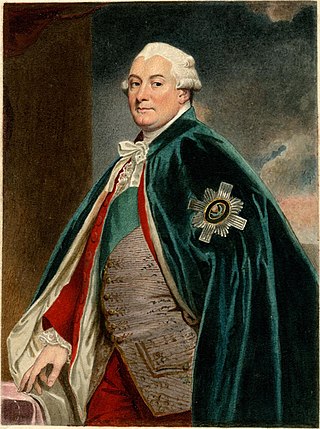John Brown most often refers to:
John Anderson may refer to:
John Murray or Murry may refer to:
Douglas, occasionally spelt Douglass, is a Scottish surname. It is thought to derive from the Scottish Gaelic dubh glas, meaning "black stream". There are numerous places in Scotland from which the surname is derived. The surname has developed into the given name Douglas. Douglas is a habitational name, which could be derived from any of the many places so-named. While there are numerous places with this name in Scotland, it is thought, in most cases, to refer to Douglas, South Lanarkshire, the location of Douglas Castle, the chief stronghold of the Lords of Douglas. The Scottish Gaelic form of the given name is Dùbhghlas ; the Irish-language forms are Dúghlas and Dubhghlas, which are pronounced. According to George Fraser Black, in southern Argyllshire the surname is an Anglicised form of the surnames MacLucas, MacLugash.
David Murray, 5th Viscount of Stormont was a Scottish Jacobite peer.
John or Johnny Graham may refer to:

Earl of Mansfield, in the County of Nottingham, and Earl of Mansfield, in the County of Middlesex, are two titles in the Peerage of Great Britain that have been united under a single holder since 1843.
William or Bill Murray may refer to:

David Murray, 2nd Earl of Mansfield, 7th Viscount of Stormont, known as the (7th) Viscount of Stormont from 1748 to 1793, was a British diplomat and politician. He succeeded to both the Mansfield and Stormont lines of the Murray family, inheriting two titles and two fortunes.

Viscount of Stormont is a title in the Peerage of Scotland. It was created in 1621 by James VI for his friend and helper Sir David Murray who had saved him from the attack of the Earl of Gowrie in 1600. Murray had already been created Lord Scone, also in the Peerage of Scotland in 1605. The peerages were created with remainder to 1) Sir Mungo Murray, fourth son of John Murray, 1st Earl of Tullibardine, failing which to 2) John Murray, who was created Earl of Annandale in 1625, and failing which to 3) Sir Andrew Murray, who was created Lord Balvaird in 1641. Lord Stormont died childless and was succeeded according to the special remainder by the aforementioned Mungo Murray, the second Viscount. He died without male issue and was succeeded according to the special remainder by James Murray, 2nd Earl of Annandale, who now also became the third Viscount Stormont. He was the son of the aforementioned John Murray, 1st Earl of Annandale. He was also childless and on his death in 1658 the earldom became extinct.
David Anderson may refer to:
Murray is both a Scottish and an Irish surname with two distinct respective etymologies. The Scottish version is a common variation of the word Moray, an anglicisation of the Medieval Gaelic word Muireb ; the b here was pronounced as v, hence the Latinization to Moravia. These names denote the district on the south shore of the Moray Firth, in Scotland. Murray is a direct transliteration of how Scottish people pronounce the word Moray. The Murray spelling is not used for the geographical area, which is Moray, but it became the commonest form of the surname, especially among Scottish emigrants, to the extent that the surname Murray is now much more common than the original surname Moray. See also Clan Murray.
William, Willie, Will, Bill or Billy Stewart may refer to:
John Stewart may refer to:

William David Murray, 4th Earl of Mansfield, 3rd Earl of Mansfield, KT, DL was a British Conservative politician. Known as Lord Stormont from 1806-1840.
Hogg is a Scottish, English or Irish surname.
Burt is an English surname. Notable people with the surname include:
Berry is a surname with numerous etymological origins.
Addison is a Scottish patronymic surname meaning "son of Addie", a Scottish Lowlands nickname for Adam.
Ingram or Ingrams is a surname, from the given name Ingram.
This page is based on this
Wikipedia article Text is available under the
CC BY-SA 4.0 license; additional terms may apply.
Images, videos and audio are available under their respective licenses.



